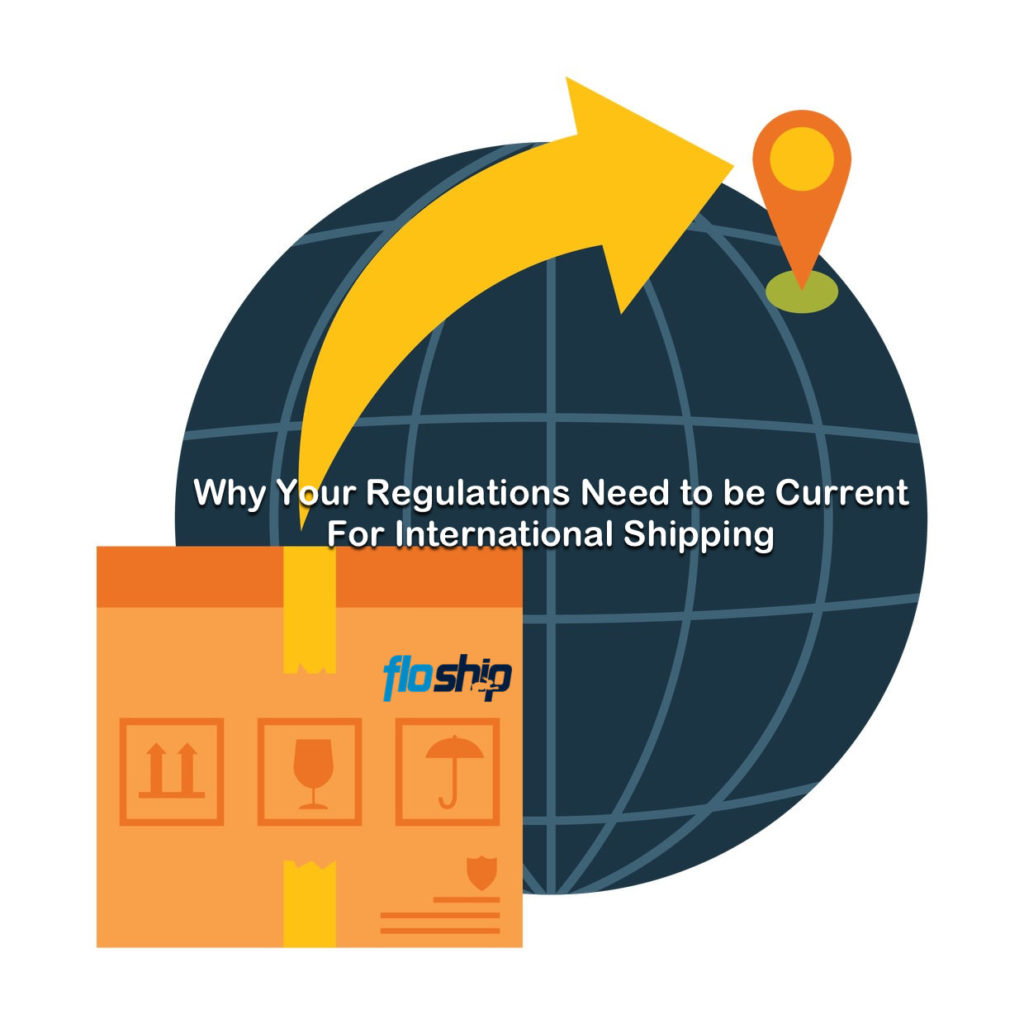International shipping is not consistent. There are numerous changes made every day about how certain products can be shipped, their coding, taxes and the packaging. This is all very important information. Without knowing what is right for your business, you might face serious legal problems such as the blocking of your shipments or heavy fines for not meeting regulations.
It is highly unlikely that you will be able to use the excuse that you didn’t realize a change had happened. The only case where you might not be in trouble is when a change has occurred in transit that wasn’t planned.
This can sometimes happen, like when a country has a health scare and immediate sanctions are placed on certain products.
However, these cases are very rare and in most cases you will have a long enough lead time to know what is being implemented, when and what it means for you.
But what are the repercussions of not being current for international shipping?
Here are some of the scenarios that can happen:
Scenario One: The Wrong Paperwork

This is probably the most common issue with international shipping.
Wrong paperwork isn’t always your fault either. Sometimes papers become lost. There are various ways that this can be resolved.
If the product is with a company agent or representative, there is a chance that the correct papers could be passed onto them and the package allowed to pass through international boundaries with only a slight delay.
However, if there is no one with the package, then there can be further problems. In some cases the package will be held and your office contacted for return of the item.
In other places around the world, the package may simply be placed in storage or rejected and sent back to you.
Finally, you could receive a fine for the additional administration costs of dealing with your package.
Scenario Two: The Wrong Packaging Material
This is less common but it is a serious problem for international shippers.
Some countries require that certain products (normally food or chemicals) be stored and transported in certain materials. This is often for health and safety reasons. Usually these don’t change so it is easy to know what your responsibilities are.
If you don’t follow these requirements, then you could face very tough repercussions. It is likely that you will have to pay a fine. You may also have to pay for the correct packaging to be applied or you could lose the package altogether.
Scenario Three: Illegal Good Sent

Sometimes goods can be illegal in certain countries.
For instance, within the Middle East, alcohol is often prohibited. Sending goods that are illegal can land you in a lot of trouble. You could be charged, in absence, for sending illegal materials and your customer can also be investigated.
Your goods will also be destroyed and at the very least you should be refunding your customer for the loss of the product.
Therefore, you’ve just got one huge cost.
The Customer Always Loses
In any scenario however, the package you are sending is going to be delayed.
This can have a negative impact on your relations with customers as your reputation is damaged. It looks unprofessional not to know the local regulations and claim to send packages to that area.
A loss of reputation could end your chances of selling in any significant numbers. Therefore, even a slight error can cause your business to lose out on a potentially lucrative market.
So always check the latest regulations that you need to adhere to and consider what you need. Otherwise your business could be financially worse off.
- Have you been affected by regulation changes?
- What happened?
International Shipping Optimization Recommended Posts
- Cracking The Harmonized System Code: Product Classification for International Shipping
- Hong Kong Fulfillment: the Missing Piece in YOUR International eCommerce Strategy
- The eCommerce Logistics Value Chain: What You Need To Know
- Guarantee Delivery: Timing and Order Processing

Ready To Upgrade Your Logistic Solution?
Speak to Floship ecommerce logistic consultant about improving your global support chain today





